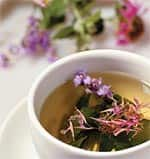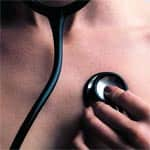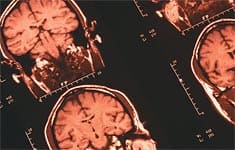TheanineJanuary 2006 By Terri Mitchell
Balancing Fat and MuscleIf there’s one place people want to restore balance, it’s in the area of body fat. As everyone knows,when fat loss is the goal, calorie expenditure is the game plan. One of the differences in people who are overweight and those who are not is that overweight people sit about two hours longer every day.50 Clearly, inactivity causes imbalance in the system, yet the mere thought of exercising makes some people tired. Motivation is lacking, and they might as well try to climb Mt. Everest as do a round on the stair climber. But what if they really did have to climb Mt. Everest? Researchers in the United Kingdom made a surprising discovery in a study of mountain climbers. Hot tea, they found out, does wonders for fatigue and vigor (as in let’s get up and go!).51 Finnish researchers made a similar discovery when questioning people about depression. None of the subjects who drank five or more cups of tea a day was depressed, whereas those drinking no tea had the highest rate of depression.7 Neither research team attributed the motivational effects of tea to caffeine. Caffeine is effective for a different aspect of weight loss: speeding up metabolism. But 100 milligrams of caffeine only increases the resting metabolic rate 3-4%.52 Upping the dose can leave a person tired and shaky. So, caffeine by itself isn’t the answer to weight loss. Enter green tea. Researchers know that green tea extract promotes thermogenesis above and beyond its caffeine content.53 They have been aware for several years that compounds in green tea increase caffeine’s calorie-burning effects. What those compounds are was a mystery until Japanese researchers decided to look into it in 2004. They divided green tea into its various components and investigated how catechins, theanine, caffeine, and green tea powder itself affect weight gain in female mice.54 They found that all the components suppressed weight gain. Green tea powder, catechins, and theanine also reduced triglyceride levels. The researchers concluded that not only can caffeine help prevent weight gain and fat accumulation, but theanine can, too. It’s not known whether the same results occur in humans. In Japan, you will more likely find theanine in your beverage than caffeine. The Japanese value the rejuvenating, mind-clearing qualities of theanine. It’s not surprising that something that restores balance is very popular in a culture where restoring balance is the foundation of medicine. Westerners would do well to take note of this gift from the East. Theanine is unique in a sea of supplements that promise much but deliver little. It’s one of the few supplements that crosses the blood-brain barrier. Research to date indicates that theanine is very useful for restoring balance to systems neglected by people who are on the go. It helps counteract the stimulating effects of caffeine, but complements caffeine’s positive aspects such as fat burning. It relaxes and rejuvenates. It reduces alcohol levels in the bloodstream and supports liver health. It restores mood and motivation, increases thermogenesis, and protects the brain. Supplemental theanine thus helps recreate the calming and centering effects of a tea ceremony in a convenient and accessible form. |
||||
| References | ||||
| 1. Singal A, Kaur S, Tirkey N, Chopra K. Green tea extract and catechin ameliorate chronic fatigue-induced oxidative stress in mice. J Med Food. 2005;8(1):47-52.
2. Hossain SJ, Aoshima H, Koda H, Kiso Y. Fragrances in oolong tea that enhance the response of GABAA receptors. Biosci Biotechnol Biochem. 2004 Sep;68(9):1842-8. 3. Huang Y, Chan NW, Lau CW, et al. Involvement of endothelium/nitric oxide in vasorelaxation induced by purified green tea (-)epicatechin. Biochim Biophys Acta. 1999 Apr 19;1427(2):322-8. 4. Unno K, Takabayashi F, Kishido T, Oku N. Suppressive effect of green tea catechins on morphologic and functional regression of the brain in aged mice with accelerated senescence (SAMP10). Exp Gerontol. 2004 Jul;39(7):1027-34. 5. Yokogoshi H, Kobayashi M, Mochizuki M, Terashima T. Effect of theanine, r-glutamylethylamide, on brain monoamines and striatal dopamine release in conscious rats. Neurochem Res. 1998 May;23(5):667-73. 6. Quinlan PT, Lane J, Moore KL, et al. The acute physiological and mood effects of tea and coffee: the role of caffeine level. Pharmacol Biochem Behav. 2000 May;66(1):19-28. 7. Hintikka J, Tolmunen T, Honkalampi K, et al. Daily tea drinking is associated with a low level of depressive symptoms in the Finnish general population. Eur J Epidemiol. 2005;20(4):359-63. 8. Negishi H, Xu JW, Ikeda K, et al. Black and green tea polyphenols attenuate blood pressure increases in stroke-prone spontaneously hypertensive rats. J Nutr. 2004 Jan;134(1):38-42. 9. Davies MJ, Judd JT, Baer DJ, et al. Black tea consumption reduces total and LDL cholesterol in mildly hypercholesterolemic adults. J Nutr. 2003 Oct;133(10):3298S-3302S. 10. Casimir J, Jadot J, Renard M. Separation and characterization of N-ethyl-gamma-glutamine from Xerocomus badius. Biochim Biophys Acta. 1960 Apr 22;39:462-8. 11. Chilcott LA and Shapiro CM. The socioeconomic impact of insomnia. An overview. Pharmacoeconomics. 1996;10 Suppl 11-14. 12. George J, Murphy T, Roberts R, Cooksley WG, Halliday JW, Powell LW. Influence of alcohol and caffeine consumption on caffeine elimination. Clin Exp Pharmacol Physiol. 1986 Oct;13(10):731-6. 13. Broughton LJ, Rogers HJ. Decreased systemic clearance of caffeine due to cimetidine. Br J Clin Pharmacol. 1981 Aug;12(2):155-9. 14. Gilbert RM, Marshman JA, Schwieder M, Berg R. Caffeine content of beverages as consumed. Can Med Assoc J. 1976 Feb 7;114(3):205-8. 15. McCusker RR, Goldberger BA, Cone EJ. Caffeine content of specialty coffees. J Anal Toxicol. 2003 Oct;27(7):520-2. 16. Kakuda T, Nozawa A, Unno T, Okamura N, Okai O. Inhibiting effects of theanine on caffeine stimulation evaluated by EEG in the rat. Biosci Biotechnol Biochem. 2000 Feb;64(2):287-93. 17. Kimura R, Kurita M, Murata T. Influence of alkylamides of glutamic acid and related compounds on the central nervous system. III. Effect of theanine on spontaneous activity of mice (author’s transl). Yakugaku Zasshi. 1975 Jul;95(7):892-5. 18. Nicassio PM, Boylan MB, McCabe TG. Progressive relaxation, EMG biofeedback and biofeedback placebo in the treatment of sleep-onset insomnia. Br J Med Psychol. 1982 Jun;55(Pt 2):159-66. 19. Friedman L, Bliwise DL, Yesavage JA, Salom SR. A preliminary study comparing sleep restriction and relaxation treatments for insomnia in older adults. J Gerontol. 1991 Jan;46(1):1-8. 20. Coursey RD, Frankel BL, Gaarder KR, Mott DE. A comparison of relaxation techniques with electrosleep therapy for chronic, sleep-onset insomnia a sleep-EEG study. Biofeedback Self Regul. 1980 Mar;5(1):57-73. 21. Available at: http://nutraingredients.com/ news/news-ng.asp?id=50679-green-tea-lulls. Accessed October 12, 2005. 22. US Patent Application 20040171624; Japanese Patent Application 2001-253740. 23. Calabrese JR, Kling MA, Gold PW. Alterations in immunocompetence during stress, bereavement, and depression: focus on neuroendocrine regulation. Am J Psychiatry. 1987 Sep;144(9):1123-34. 24. Ou XM, Storring JM, Kushwaha N, Albert PR. Heterodimerization of mineralocorticoid and glucocorticoid receptors at a novel negative response element of the 5-HT1A receptor gene. J Biol Chem. 2001 Apr 27;276(17):14299-307. 25. Bhatia V, Tandon RK. Stress and the gastrointestinal tract. J Gastroenterol Hepatol. 2005 Mar;20(3):332-9. 26. Schleimer RP, Jacques A, Shin HS, Lichtenstein LM, Plaut M. Inhibition of T cell-mediated cytotoxicity by anti-inflammatory steroids. J Immunol. 1984 Jan;132(1):266-71. 27. Price LH, Cappiello A, Malison RT, et al. Effects of antiglucocorticoid treatment on 5-HT1A function in depressed patients and healthy subjects. Neuropsychopharmacology. 1997 Oct;17(4):246-57. 28. Janowsky DS, Risch SC, Huey LY, Judd LL, Rausch JL. Hypothalamic=pituitary-adrenal regulation, neurotransmitters and affective disorder. Peptides. 1983 Sep-Oct;4(5):775-84. 29. Gartside SE, Leitch MM, Young AH. Altered glucocorticoid rhythm attenuates the ability of a chronic SSRI to elevate forebrain 5-HT: implications for the treatment of depression. Neuropsychopharmacology. 2003 Sep;28(9):1572-8. 30. McEwen BS. Glucocorticoids, depression, and mood disorders: structural remodeling in the brain. Metabolism. 2005 May;54(5 Suppl 1):20-3. 31. Sapolsky RM. Glucocorticoids and hippocampal atrophy in neuropsychiatric disorders. Arch Gen Psychiatry. 2000 Oct;57(10):925-35. 32. Reus VI, Wolkowitz OM. Antiglucocorticoid drugs in the treatment of depression. Expert Opin Investig Drugs. 2001 Oct;10(10):1789-96. 33. Murphy BE. Antiglucocorticoid therapies in major depression: a review. Psychoneuroendocrinology. 1997;22 Suppl 1S125-32. 34. Paul IA, Skolnick P. Glutamate and depression: clinical and preclinical studies. Ann NY Acad Sci. 2003 Nov;1003:250-72. 35. Sanacora G, Gueorguieva R, Epperson CN, et al. Subtype-specific alterations of gamma-aminobutyric acid and glutamate in patients with major depression. Arch Gen Psychiatry. 2004 Jul;61(7):705-13. 36. Trullas R, Skolnick P. Functional antagonists at the NMDA receptor complex exhibit antidepressant actions. Eur J Pharmacol. 1990 Aug 21;185(1):1-10. 37. Huber TJ, Dietrich DE, Emrich HM. Possible use of amantadine in depression. Pharmacopsychiatry. 1999 Mar;32(2):47-55. 38. Shinozaki H, Ishida M. Theanine as a glutamate antagonist in crayfish neuromuscular junction. Brain Res. 1978 Jul 28;151(1):215-9. 39. Danilczuk Z, Ossowska G, Lupina T, Cieslik K, Zebrowska-Lupina I. Effect of NMDA receptor antagonists on behavioral impairment induced by chronic treatment with dexamethsome. Pharmacol Rep. 2005 Jan-Feb;57(1):47-54. 40. Hinoi E, Takarada T, Tsuchihashi Y, Yoneda Y. Glutamate transporters as drug targets. Curr Drug Targets CNS Neurol Disord. 2005 Apr;4(2):211-20. 41. Kolb JE, Trettel J, Levine ES. BDNF enhancement of postsynaptic NMDA receptors is blocked by ethanol. Synapse. 2005 Jan;55(1):52-7. 42. Yamada KA, Covey DF, Hsu CY, et al. The diazoxide derivative IDRA 21 enhances ischemic hippocampal neuron injury. Ann Neurol. 1998 May;43(5):664-9. 43. Bao HY, Zhang J, Yeo SJ, et al. Memory enhancing and neuroprotective effects of selected ginsenosides. Arch Pharm Res. 2005 Mar;28(3):335-42. 44. Tyszkiewicz JP, Yan Z. Beta-Amyloid peptides impair PKC-dependent functions of metabotropic glutamate receptors in prefrontal cortical neurons. J Neurophysiol. 2005 Jun;93(6):3102-11. 45. Egashira N, Hayakawa K, Mishima K, et al. Neuroprotective effect of gamma-glutamylethylamide (theanine) on cerebral infarction in mice. Neurosci Lett. 2004 Jun 3;363(1):58-61. 46. Chen Z, Li Y, Zhao LC, et al. A study on the association between tea consumption and stroke. Zhonghua Liu Xing Bing Xue Za Zhi. 2004 Aug;25(8):666-70. 47. Sadzuka Y, Inoue C, Hirooka S, et al. Effects of theanine on alcohol metabolism and hepatic toxicity. Biol Pharm Bull. 2005 Sep;28(9):1702-6. 48. Sugiyama T, Sadzuka Y. Theanine, a specific glutamate derivative in green tea, reduces the adverse reactions of doxorubicin by changing the glutathione level. Cancer Lett. 2004 Aug 30;212(2):177-84. 49. Sadzuka Y, Sugiyama T, Suzuki T, Sonobe T. Enhancement of the activity of doxorubicin by inhibition of glutamate transporter. Toxicol Lett. 2001 Sep 15;123(2-3):159-67. 50. Levine JA, Lanningham-Foster LM, McCrady SK, et al. Interindividual variation in posture allocation: possible role in human obesity. Science. 2005 Jan 28;307(5709):584-6. 51. Scott D, Rycroft JA, Aspen J, Chapman C, Brown B. The effect of drinking tea at high altitude on hydration status and mood. Eur J Appl Physiol. 2004 Apr;91(4):493-8. 52. Dulloo AG, Geissler CA, Horton T, Collins A, Miller DS. Normal caffeine consumption: influence on thermogenesis and daily energy expenditure in lean and postobese human volunteers. Am J Clin Nutr. 1989 Jan;49(1):44-50. 53. Dulloo AG, Seydoux J, Girardier L, Chantre P, Vandermander J. Green tea and thermogenesis: interactions between catechin-polyphenols, caffeine and sympathetic activity. Int J Obes Relat Metab Disord. 2000 Feb;24(2):252-8. 54. Zheng G, Sayama K, Okubo T, Juneja LR, Oguni I. Anti-obesity effects of three major components of green tea, catechins and theanine, in mice. In Vivo. 2004 Jan-Feb;18(1):55-62. |
Source: Theanine: Natural Support for Sleep, Mood, and Weight – 2 – Life Extension


